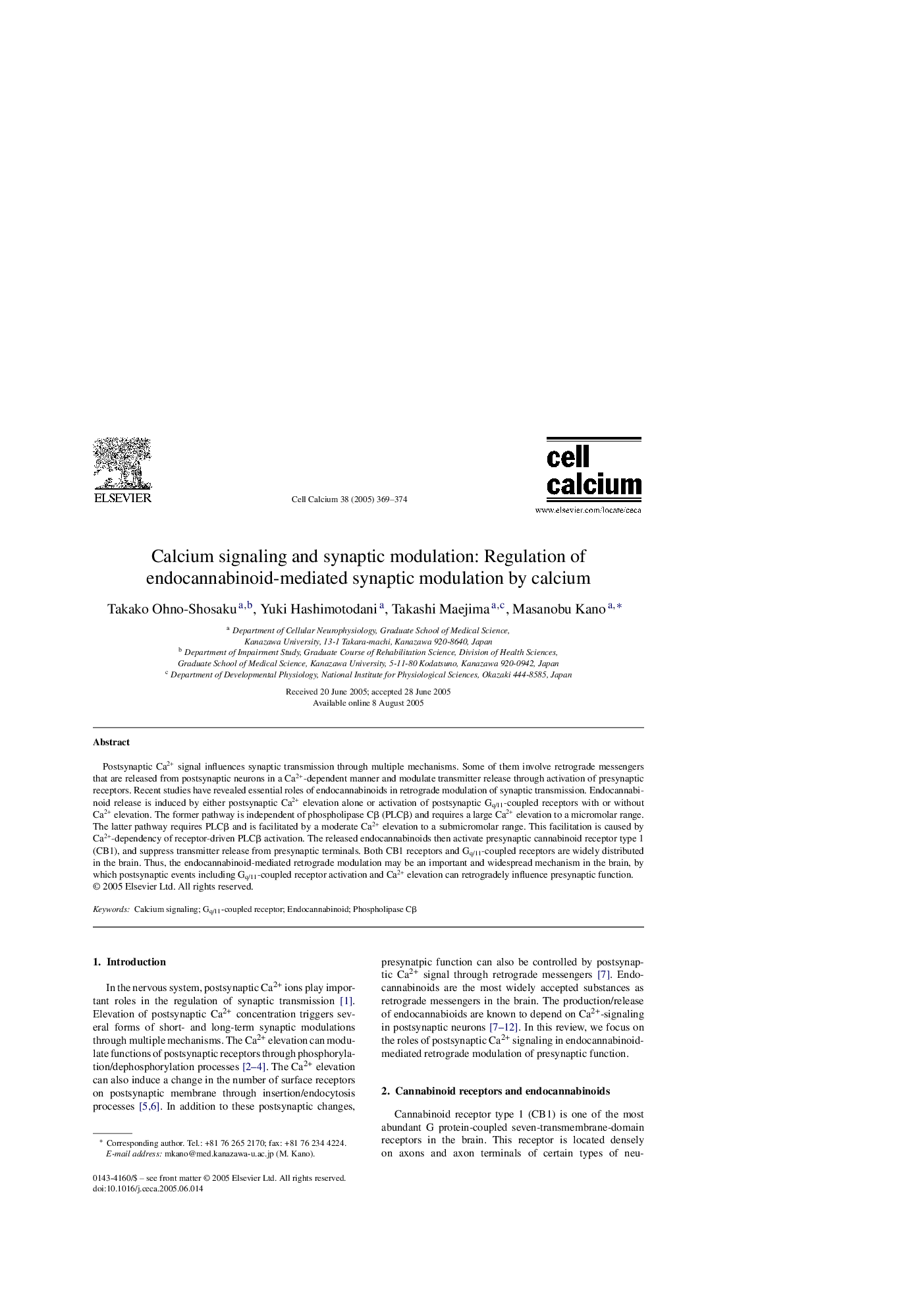| Article ID | Journal | Published Year | Pages | File Type |
|---|---|---|---|---|
| 9911950 | Cell Calcium | 2005 | 6 Pages |
Abstract
Postsynaptic Ca2+ signal influences synaptic transmission through multiple mechanisms. Some of them involve retrograde messengers that are released from postsynaptic neurons in a Ca2+-dependent manner and modulate transmitter release through activation of presynaptic receptors. Recent studies have revealed essential roles of endocannabinoids in retrograde modulation of synaptic transmission. Endocannabinoid release is induced by either postsynaptic Ca2+ elevation alone or activation of postsynaptic Gq/11-coupled receptors with or without Ca2+ elevation. The former pathway is independent of phospholipase Cβ (PLCβ) and requires a large Ca2+ elevation to a micromolar range. The latter pathway requires PLCβ and is facilitated by a moderate Ca2+ elevation to a submicromolar range. This facilitation is caused by Ca2+-dependency of receptor-driven PLCβ activation. The released endocannabinoids then activate presynaptic cannabinoid receptor type 1 (CB1), and suppress transmitter release from presynaptic terminals. Both CB1 receptors and Gq/11-coupled receptors are widely distributed in the brain. Thus, the endocannabinoid-mediated retrograde modulation may be an important and widespread mechanism in the brain, by which postsynaptic events including Gq/11-coupled receptor activation and Ca2+ elevation can retrogradely influence presynaptic function.
Related Topics
Life Sciences
Biochemistry, Genetics and Molecular Biology
Cell Biology
Authors
Takako Ohno-Shosaku, Yuki Hashimotodani, Takashi Maejima, Masanobu Kano,
